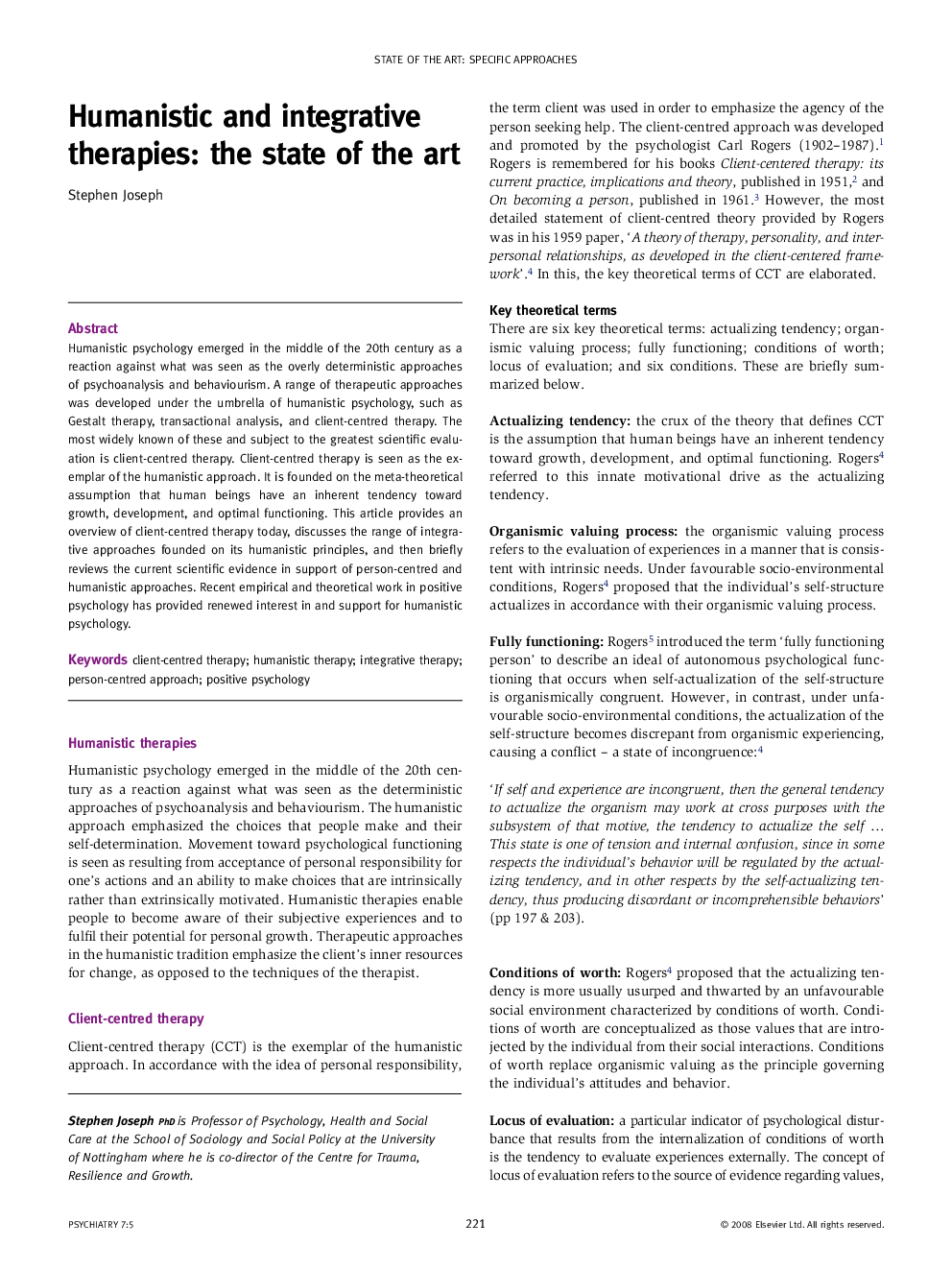| Article ID | Journal | Published Year | Pages | File Type |
|---|---|---|---|---|
| 4189995 | Psychiatry | 2008 | 4 Pages |
Humanistic psychology emerged in the middle of the 20th century as a reaction against what was seen as the overly deterministic approaches of psychoanalysis and behaviourism. A range of therapeutic approaches was developed under the umbrella of humanistic psychology, such as Gestalt therapy, transactional analysis, and client-centred therapy. The most widely known of these and subject to the greatest scientific evaluation is client-centred therapy. Client-centred therapy is seen as the exemplar of the humanistic approach. It is founded on the meta-theoretical assumption that human beings have an inherent tendency toward growth, development, and optimal functioning. This article provides an overview of client-centred therapy today, discusses the range of integrative approaches founded on its humanistic principles, and then briefly reviews the current scientific evidence in support of person-centred and humanistic approaches. Recent empirical and theoretical work in positive psychology has provided renewed interest in and support for humanistic psychology.
